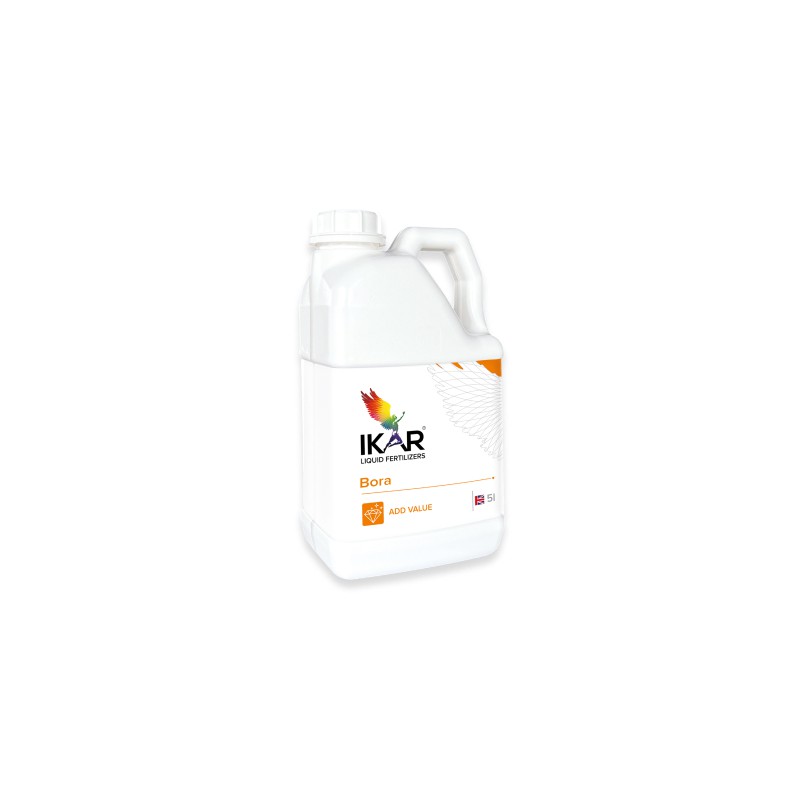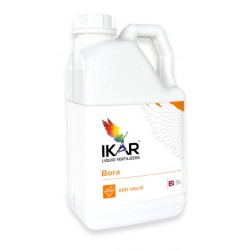IKAR B170
| Structure | |
|---|---|
| **Density 20 C, g/ml | 1.415 |
| *pH 1:10 H2O | 8.3-8.5 |
| Nitrogen (N-NH2) | 5%, 70g/l |
| Boron (B) | 12%, 170g/l |
| Molybdenum (Mo) | 0.5%, 7g/l |
A liquid concentrated boron – molybdenum (B-Mo) fertilizer. Boron stimulates formation of generative organs of the plant, growth of seeds and fruits. Boron is necessary for assimilation of potassium in plants, accelerates transportation of sugar, develops root system, increases resistance against fungous diseases and draughts. Boron helps to better assimilate calcium, supports potassium (K) balance within plant. Molybdenum is important trace element for many agricultural plants. Molybdenum, by stimulating synthesis of chlorophyll, enforces photo-synthesis and increases starchiness, accelerating reduction of nitrates and synthesis of proteins, increases quantity of proteins. Molybdenum positively affects growth of spice and accumulative plants. For normal development leguminous plants need bigger quantity of molybdenum than others. In roots of leguminous plants nitrogen fixing bacteria use molybdenum for process of fixing nitrogen from air. Therefore, fertilizing with molybdenum increases process of nitrogen fixation in roots of such plants. Boron in plants is sessile, therefore, condition of plants is also determined by constant reception of this trace element. Lack of boron shows due to imbalance between boron and calcium, little quantity of organic substances in soil. In alkaline soils calcium suppresses absorption of boron. Draught, insufficient quantity of dampness, low temperature, big amount of fall over short time - factors causing lack of boron. Boron and molybdenum are necessary for plants during full vegetation, they cannot be replaced with other elements.







